
OR
Opinion
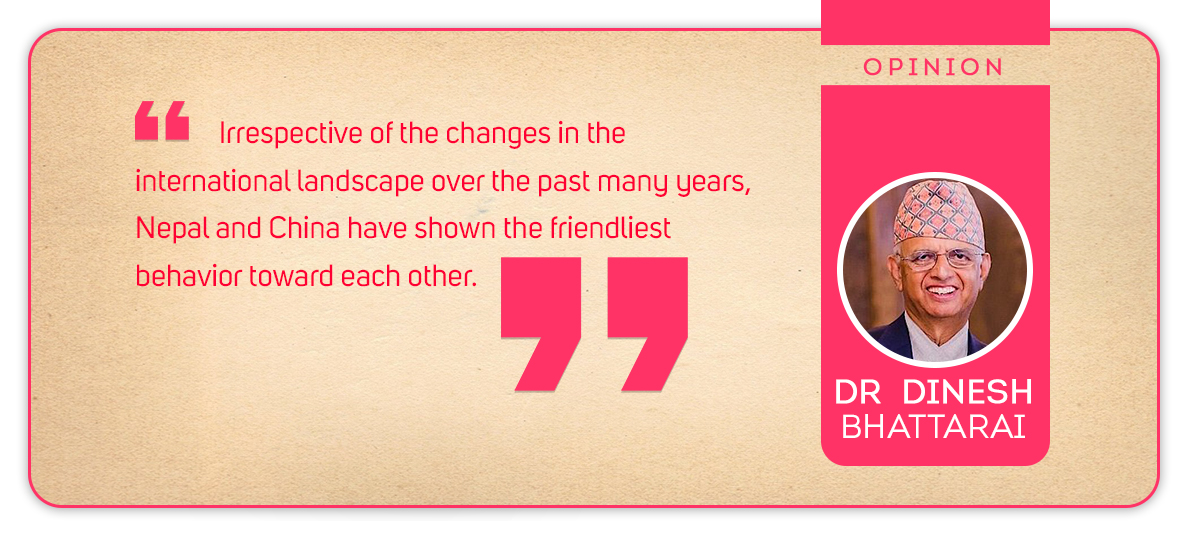

Dinesh Bhattarai
Dinesh Bhattarai, former diplomat and foreign policy expert, has served as the foreign affairs adviser of former prime ministers Sher Bahadur Deuba and Sushil Koirala.news@myrepublica.com
Irrespective of the changes in the international landscape over the past many years, Nepal and China have shown the friendliest behavior toward each other. They have supported each other and carried out development cooperation for mutual benefit.
Nepal and China entered the modern era almost at the same time. A new era dawned in China after the proclamation of the founding of the People’s Republic of China on 1 October 1949 under the leadership of the Communist Party of China (CPC). It was the CPC under Mao Zedong’s leadership that defeated Chiang Kai-shek’s Kuomintang, or Nationalist party, after a protracted and arduous struggle, and finally overthrew what it called the “the oppression of imperialism, feudalism and bureaucratic capitalism, which weighed like mountains on the backs of the Chinese people.”
On October 1, 1949, Chairman Mao proclaimed from the Tiananmen Rostrum, “This government is the sole legal government representing the entire people of the People’s Republic of China. It is ready to establish diplomatic relations with any foreign government which is willing to observe the principles of equality, mutual benefit and mutual respect for territorial integrity and sovereignty.” With this, the People’s Republic of China began its journey of a confident nation in place of a China that was “tragically bullied, humiliated and plundered by big powers” and began a new chapter in diplomacy.
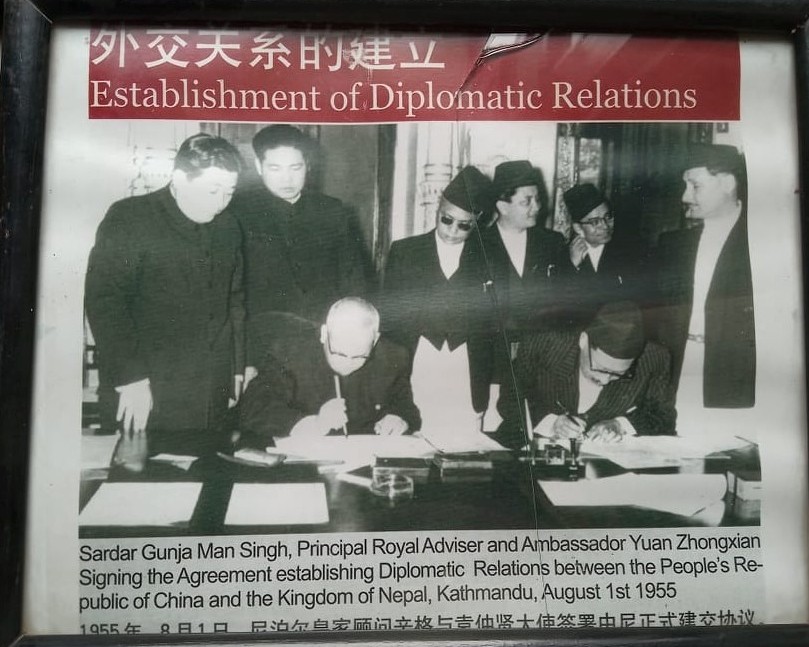
The popular revolution of 1950-51 led by the Nepali Congress Party overthrew the 104-year-old Rana family rule. Nepal joined the comity of democratic nations at a time when India had just emerged as an independent nation from the shadow of British colonialism in 1947, and the founding of the People’s Republic of China on October 1, 1949, under the CPC leadership.
Following the successful popular revolution led by the Nepali Congress in 1951, the then King Tribhuvan announced that elections to the Constituent Assembly (CA) would be held to draft a constitution to govern the country by the people’s representatives. However, the elections to CA could not take place as it was opposed by King Mahendra who succeeded his father Tribhuvan in 1955. King Mahendra promulgated a constitution drafted by experts with inputs from British constitutional expert Sir Ivor Jennings and modeled on the British parliamentary practices.
Under the new constitution, elections were held, and NC got 74 seats in a House of 109. With the election of BP Koirala as the Prime Minister, Nepal had a democratic representation and public accountability in governance for the first time in its history. However, the elected government could remain in office only for 18 months (May 27, 1959 to December 15, 1960). King Mahendra not only dismissed the elected Prime Minister, but also dismantled the entire structure of the parliamentary system of governance. This showed the hostility of Nepal’s kings to the elected government and their unlimited greed for absolute power. The king’s pretext for his antidemocratic and unconstitutional action was nationalism. This pretext was compatible with the slogans of Nepali Communists. An American scholar on Nepal’s foreign policy and politics, Leo E Rose saw the king’s action was to encourage Nepali Communists who were ready to aid the king in his jingoistic actions.
As the torchbearer of democracy in Nepal, the NC had its foreign policy conceived in the people’s desire for freedom and democracy. NC rejected the policy of one-sided and unequal relations followed by the Rana regime which looked upon the outside world through the British Lens. NC’s attitude toward Nepal-China relations appears to be inspired by the concept that these relations must not be influenced by the state of India-China relations. Nepal cannot protect its national interests by establishing intimate relations with one and by ignoring the other. The NC was, therefore, for expanding and diversifying diplomatic relations to highlight Nepal’s independent identity and project Nepal’s international personality.
Diplomacy of Contemporary China records that Nepal was friendly to New China. The government of Nepal sent a message to China in March 1950 (p.13). The NC Working Committee that met immediately after the success of the democratic revolution of 1950-1951 demanded that Nepal establish diplomatic relations with the People’s Republic of China. The commander of the democratic revolution and NC founding leader BP Koirala in his article entitled “Bartaman Paristhitiko Vishleshna: Char Rajnaitik Lekh'', (Analysis of the Present Situation: Four political articles) made it clear that independent Nepal is in the best interests of its neighbors. He wrote: “The Nepali Congress believes that our welfare also lies in the peaceful progress of Hindustan, and that the welfare of Hindustan lies in respecting the independence of Nepal. Hindustan cannot obtain the type of help that Nepal can extend as an independent and self-reliant nation than as a nation dependable on others. We wish China well. Our feelings toward China are that of honor. Particularly in view of the social and political experiments that are taking place there, we want our relations with that country to be more intimate.”
Speaking at a program organized by the Nepal-China Friendship Association that was formed in September 1954 to promote Nepal’s friendship with China, Krishna Prasad Bhattarai, a leader of the NC who later became the speaker of the House of Representatives, President of the Party and the Prime Minister of Nepal, said: “The interest of our small country, which is situated in between China in the north and India in the south, lies in ensuring friendship with both the large nations. We have deep cultural relations with both these large nations. It is regrettable that the cultural unity with one friendly nation is being widely publicized while with another nation is being kept confined to the pages of history.”
Nepal and China began their contacts on establishment of diplomatic relations in 1951, through their embassies in India. In late July 1955, the two sides issued a communique on the establishment of diplomatic relations on 1 August, on the basis of the Five Principles of Peaceful Co-existence - known as Panchsheel derived from the teachings of Lord Buddha – the enlightened son of Nepal. The agreement to establish diplomatic relations between Nepal and China was signed by Sardar Gunja Man Singh, Principal Royal Adviser, and Ambassador Yuan Zhongxian. Nepal’s Prime Minister Tanka Prasad Acharya visited China in 1956 and told his host, “Nepal feels very happy to be between the two great and most progressive republics in Asia -India and China - and these two great neighbors of Nepal are the great promoters of peace, friendship and peaceful co-existence of our times.”
In March 1960, when Prime Minister BP Koirala visited China, the two countries with a view, “to further strengthen the ties and cooperation between the two countries, the two governments agreed to establish embassies mutually in Peking and Kathmandu.” It was during this visit that the “agreement” between Nepal and China was signed on the question of the boundary between the two countries “in order to ensure tranquility on the border of the two countries and bring about the formal delimitation of the boundary between them as soon as possible.” The issue of Mt Everest was also settled in Nepal’s favor. BP Koirala made it clear that “it belonged to Nepal and Nepal alone.” In line with this agreement, “The Boundary Treaty” on the formal settlement of the question of the boundary was signed between the two governments on October 5, 1961.
At a time when the rest of world, particularly the Western world, appeared reluctant to engage the People’s Republic of China, Prime Minister Koirala had made a forceful plea for China’s representation before the 15th UN General Assembly on 29 September 1960 and said, “the United Nations can neither become universal nor can it reflect the political realities existing in the world today until the People's Republic of China is given its rightful place in the Organization.” Subsequent developments stand as testimony to this statement. China at the center of global affairs and attention is the political reality of the day.
Irrespective of the changes in the international landscape over these years, Nepal and China have shown the friendliest behavior toward each other. They have supported each other and carried out development cooperation for mutual benefit. Regular exchange of visits at various levels between the two countries contributed to further strengthening Nepal-China relations. President Xi Jinping visited Nepal from October 12-13, 2019- the first in 23 years after his predecessor Jiang Zemin’s visit in 1996. It was during Xi’s visit that the two countries decided to elevate their relationship to a “strategic partnership of cooperation featuring ever-lasting friendship for development and prosperity in line with the spirit of mutual support and win-win cooperation.” President Xi promised his help to transform Nepal from a landlocked country to a land-linked country. The two sides also talked of accelerating the building of the Trans-Himalayan Multi-Dimensional Connectivity Network through connectivity projects including ports, highways, railways, aviation, and communications.
The Nepali side reiterated its firm stand in upholding the One China policy and “will never allow any force to use its territory for separatist activities against China. “No matter how the international circumstances change, the Nepali side will resolutely follow the friendly policy toward China,” it said.
On October 14, 2019, Chinese Foreign Minister Wang Yi talking about President Xi Jinping's second informal meeting with Indian Prime Minister Narendra Modi, and President’s state visit to Nepal, said, for more than half of a century since the establishment of diplomatic relations, “China and Nepal have always respected, trusted and supported each other, setting a fine example of harmonious coexistence between countries with different systems and sizes.” The Foreign Minister also said that President Xi and Prime Minister Modi “agreed to expand "China-India Plus" cooperation, advance regional connectivity building, and work with other parties to conclude the Regional Comprehensive Economic Partnership at an early date.” Two years on, the clear concept and contents of “strategic partnership” and “China-India Plus” and their significance are yet to be made public, and what they mean to each side and what could be their implications on their national interests, national sovereignty and security, and national development in a larger context.
Asia is emerging as an epicenter of 21st century geopolitics. The rise of new China has been the driving dynamic of the rapidly shifting geopolitics. China is projected soon to be the world’s number one economy. China marked the 100th birth anniversary of the CPC on July 1, 2021. Addressing a large gathering of over 70,000 people at Beijing’s Tiananmen Square, President Xi Jinping said that China has irreversibly emerged from the past humiliation by foreign powers into an era of pride and prosperity. He showcased the achievements the Party made during these years. Today, the CPC is the longest governing party in the world, and presides over the world’s second largest economy, largest armed forces and rapidly expanding technology.
In his address, President Xin made it clear that China has realized the first centenary goal of building a moderately prosperous society in all respects. He linked China’s success to the Party and said, “Without the Communist Party of China, there would be no new China and no national rejuvenation.” He warned any attempt to divide the Party from the Chinese people or to set the people against the Party is bound to fail. Past humiliation of China was repeatedly referred to. President Xi emphasized that the Chinese people “will never allow any foreign force to bully, oppress, or enslave us.” “Anyone”, he warned, “who tries to do so shall be battered and bloodied from colliding with a great wall of steel forged by more than 1.4 billion Chinese people using flesh and blood.” He said that the Communist Party and the Chinese people “welcome all helpful suggestions and constructive criticism. But we won’t accept sanctimonious lectures from self-styled preachers.”
Clive Hamilton and Mareike Ohlberg in their book, “Hidden Hand” write that the CPC works hard to convince the people in China and abroad that it speaks for all Chinese people. It yearns to be seen as the arbiter of all things Chinese, and insists that for Chinese people, wherever they are, to love the country means to love the Party, and only those who love the Party truly love the country. It claims that the Party is the people, and any criticism of the Party is therefore an attack on the Chinese people.”
Nepal is one of the 14 neighbors of China. Engagements between Nepal and China cover a wide range of cooperative areas. Nepal and China maintain different social and political systems. Over the years, they have bound themselves closer together through various development projects including the signing of a Memorandum of Understanding on the Belt and Road Initiative (BRI). Mutual dependence is based on the five principles of peaceful coexistence. It is as vital to the destinies of the two nations as to the fate of Asia and the world at large. To ensure the spirit of “win-win cooperation,” it is necessary for both the countries to have commitments and agreed decisions implemented thoroughly and sincerely for mutual benefit.
The geostrategic location of Nepal prominently figures in the foreign and security policy discussions of established and emerging powers, thanks to its border with Tibet. Tibet is a strategic necessity for China. Peace, stability and development in Tibet is vital for Beijing. China is concerned about the possible plays by Western powers on the Tibet issue from the Nepali soil. Nepal has consistently maintained the One China Policy and does not tolerate any hostile activities against the neighbors’ interests. While Nepal remains sensitive to Chinese sensitivities, it expects powerful China to be respectful to Kathmandu’s sensitivities also. Political opportunism, double standard and ad hoc approach to sensitive national and security issues displayed by the present Oli government has not only subordinated the long-term national interests to momentary political power, but also led to the loss of faith in the neighbors’ thinking and behavior toward Nepal.
Nepal’s engagements with its neighbors need to be effectively, strategically, and systematically oriented. As geopolitical trends put India and China in opposite directions, this demands a very tightrope walk and skillful management of relations with them and the wider world to preserve Nepal’s historic independence. Only on the strong national foundations of time-tested values, principles, and practices, with consistent adherence to them, can Nepal earn the confidence of its neighbors, friends and well-wishers and promote friendship, cultivate goodwill and garner support and development assistance for advancing national interests and achieving prosperity. Consistency is a must for credibility. Credibility requires capacity and ability to maintain it. Inconsistent behavior and double standards of the Nepali communists of all brands have shown opportunism both in domestic and foreign policy. They pay lip service to democracy, but utterly lack it in actions.
The Oli government has effectively abdicated its responsibility toward the people, betrayed their mandate, squandered near two-thirds majority, and utterly failed to deliver their commitments made to the people. They have encouraged structural corruption that has eaten the vitals of democracy and hindered development. Above all, they have set aside the much-needed sensitivity in their conduct and contributed to the erosion of hard-earned credibility. People have been left in the lurch, as the government has utterly failed in the vaccination drive. The nation has lost its hard-earned credibility, and our friends in the international community have chosen to ignore the plea for vaccine help. They pity us, and discount us as has been glaringly manifested in the three and a half years of the Oli government.
Nepal has immense opportunities to benefit from the economic dynamism in the neighborhood. Trust based relationship with both of its neighbors - China and India - is the key to peace, stability, democracy, and prosperity in Nepal and to mutually beneficial relations with the rest of the world. Nepal needs to do its homework properly and thoroughly with clarity to seize emerging opportunities and navigate through the challenges that have arrived at its doorsteps.
You May Like This

Call for Restraint to Deepen Nepal-China Ties
Chinese Ambassador to Nepal, Chen Song, has been making headlines in Nepal over the past few days. On September 2,... Read More...
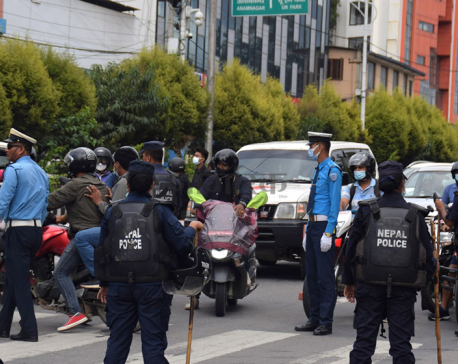
VIP movement likely to affect vehicular movement in Kathmandu today as well
KATHMANDU, Sept 14: The Kathmandu Valley Traffic Police Office has informed all that vehicular movement in Kathmandu Valley may be... Read More...
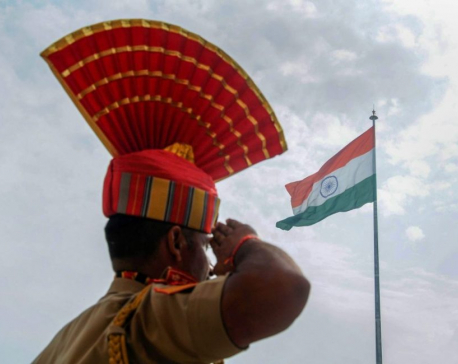
The fault lines of Indian regionalism
Although India is competing with China by investing in connectivity in the region, it has not fully embraced economic openness.... Read More...






Just In
- CAN adds four players to squad for T20 series against West Indies 'A'
- ‘Precast' technology introduced in the construction of bridges along Muglin-Pokhara road
- Leopard attack injures young man in Kanchanpur
- SC rejects writ petition filed against Home Minister Lamichhane
- Nepal and China sign two agreements in the presence of Finance Minister Pun
- Pun released on bail in Supreme Cooperative fraud case
- Govt should not look for enforcing populist budget for next FY: Former finance ministers
- DoFE requests relevant parties to provide essential facilities to foreign workers traveling abroad












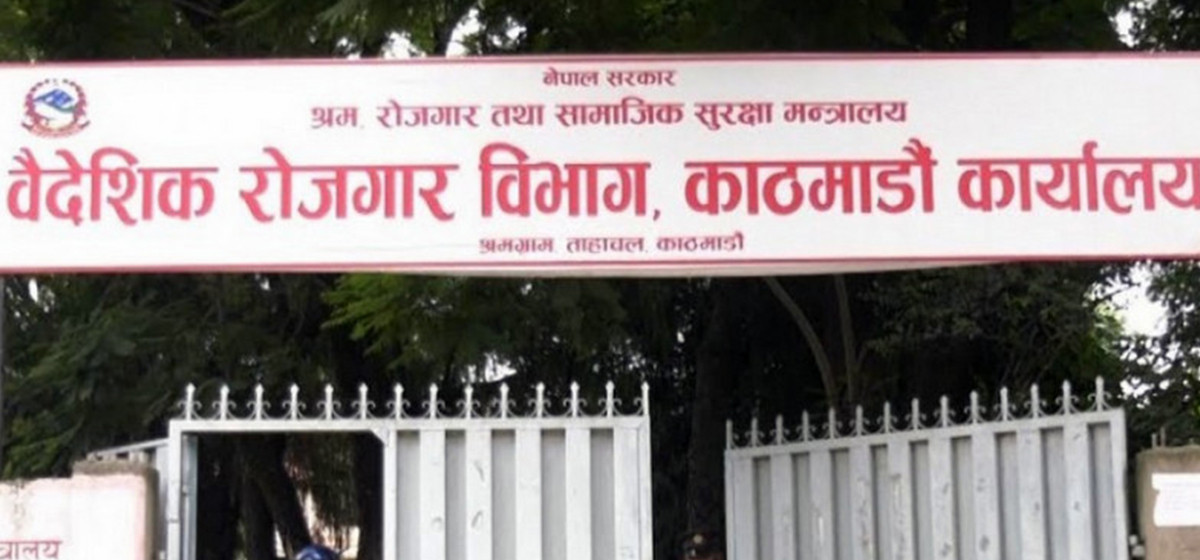
Leave A Comment